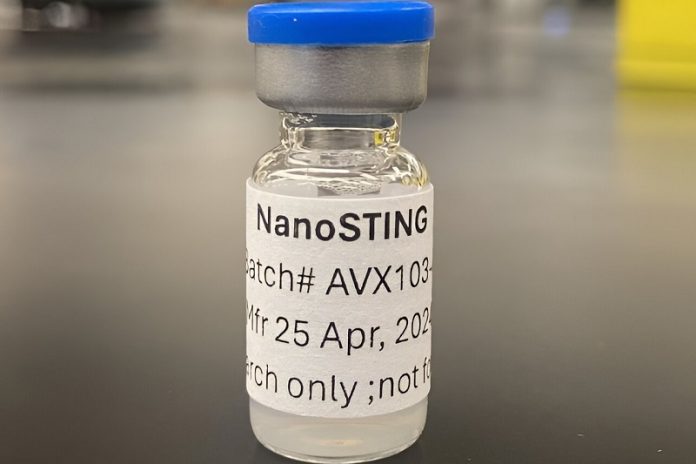
A team of researchers from the University of Houston has made significant strides in the fight against respiratory viruses, including the flu and various coronaviruses.
Led by Professor Navin Varadarajan, the team has developed two groundbreaking nasal spray treatments that could offer powerful protection against these viruses.
Their findings were published in two separate studies in Nature Communications.
NanoSTING: A new way to boost immunity
The first breakthrough is a nasal spray called NanoSTING, designed to enhance the body’s immune response to respiratory viruses.
NanoSTING uses tiny droplets of fat to deliver an immune-boosting ingredient called cGAMP directly to the cells in the nasal passages
. This ingredient helps the immune system stay on high alert, making it more effective at preventing infections.
The researchers tested NanoSTING on different models and found that a single dose of the spray not only protected against severe strains of COVID-19, including the Omicron variants, but also prevented these highly contagious variants from spreading to others.
By delivering the spray through the nose, NanoSTING activates the immune system right where many respiratory viruses first enter the body.
Dr. Ankita Leekha, the study’s first author, explained, “Our results showed that NanoSTING can trigger beneficial immune responses that protect against a wide range of respiratory viruses, including both flu strains that are sensitive and resistant to Tamiflu.” The big advantage of NanoSTING is that it only requires one dose, unlike treatments like Tamiflu, which need to be taken multiple times.
NanoSTING-SN: A Universal Coronavirus Vaccine?
The second major development from the team is NanoSTING-SN, a nasal spray vaccine that could provide protection against multiple coronaviruses and their variants. While current COVID-19 vaccines need regular updates to keep up with the evolving virus, NanoSTING-SN aims to offer broader and more long-lasting protection.
The vaccine works by eliminating the virus’s ability to replicate in both the lungs and the nostrils, areas where it typically spreads. In preclinical tests, the vaccine not only protected the primary host from severe disease but also prevented the transmission of highly contagious variants, like Omicron, to others who hadn’t been vaccinated.
Leekha expressed optimism about the potential of NanoSTING-SN, saying, “The ability to protect against multiple coronaviruses and variants opens the door to a universal coronavirus vaccine. If we can prevent both infection and transmission, we might finally be able to break the cycle of viral evolution and spread, especially in people with weakened immune systems.”
These developments were made possible through a collaboration between researchers at the University of Houston, Utah State University, and AuraVax Therapeutics, a spinoff company from Varadarajan’s lab. The new treatments could revolutionize how we protect against respiratory viruses, offering more effective and convenient options for preventing both the flu and coronavirus infections.
With these new tools, we may be one step closer to controlling the spread of these viruses and preventing future pandemics.
If you care about COVID, please read studies about vitamin D deficiency linked to severe COVID-19, death, and how diets could help manage post-COVID syndrome.
For more health information, please see recent studies about COVID infection and vaccination linked to heart disease, and results showing extracts from two wild plants can inhibit COVID-19 virus.



